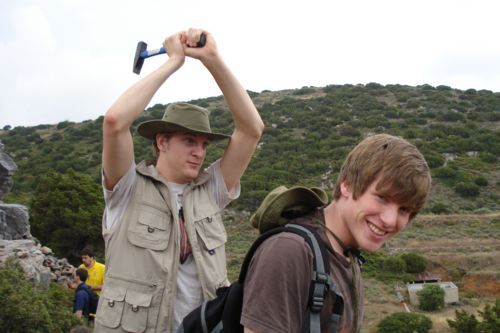Wanted: Volcanologist needed to deal with crisis; experience essential.
You will find one thing in common if you browse through the jobs section of any newspaper or organisation’s website: “Experience needed”.
Experience in theory allows us to overcome challenges more quickly, to foresee difficulties before they become a problem. Thus, an employee with experience can be very valuable. However, if you listen to a young person looking for their first job, ‘experience’ is an obstacle that needs to be overcome, a sometimes insurmountable circular argument whereby the individual needs experience to get a job, yet also needs a job to get experience.
When it comes to volcanology, a science that exists to understand volcanic processes and ultimately reduce risk, experience can be key - just ask any volcanologist. My advisors gained a lot of experience in the initial years of the eruption of the Soufrière Hills (Montserrat), the generation before them learnt from Mt. St Helens, Soufrière St Vincent or numerous other eruptions. So what about my generation, those that were perhaps inspired to study volcanology by some of these crises, but certainly didn’t feature in them. There are various ways to look at the occurrence of eruptions, but to quote an ‘Eruca Sativa’ scientist in my field:
“Sixteen years have passed since the last global volcanic event and more than 25 since a volcanic catastrophe that killed tens of thousands”.
How do we gain experience in the time in-between large eruptions or difficult crises? Now, if you can ignore Eyjafjallajökull for just a few moments whilst I make my point (the above quote came from before this eruption), time is passing quickly and the volcanologists that dealt with these crises in the past are unfortunately getting older.
The responsibility to learn is with an individual
Much emphasis in academia is put on exam results, then degree classification, then publications, citation indices and I guess ultimately the receipt of large grants. Inevitably this is highly individualistic and whilst it may develop brilliant scientists (and is a perfectly valid approach), it puts a focus on one’s own achievements. In an environment where people feel they need to first prove themselves, then learn from others, exactly how much knowledge or experience can be transferred between generations? In short: it is my generation’s responsibility to learn from those who have gone before us. By learn, I don’t mean: read a paper, cite an author and then make an improvement with one’s own work. Learning in this sense should be about listening to people who have ‘been there, done that, and got the t-shirt’.
There is so much invaluable information that can (and should be) learnt from those (not just volcanologists) that have dealt with crises in the past. It requires a different approach, an exercise of humility, listening to the stories and not just focussing on publishable research. I was fortunate enough recently to take part in a ‘forensic workshop’. It gathered diverse people together to talk about a past crisis, not just about the science, but about what made things better or worse. It was brilliant - people discussing real life issues, not their own research or own achievements.
There are some very effective ways to increase knowledge exchange, but in my mind the best and most effective way is to sit down, listen and learn. It isn’t hard to get someone talking about “the old days”, why don’t we do it more often? Can we gain experience without having ‘been there’? Of course we can. We can’t afford not to.

